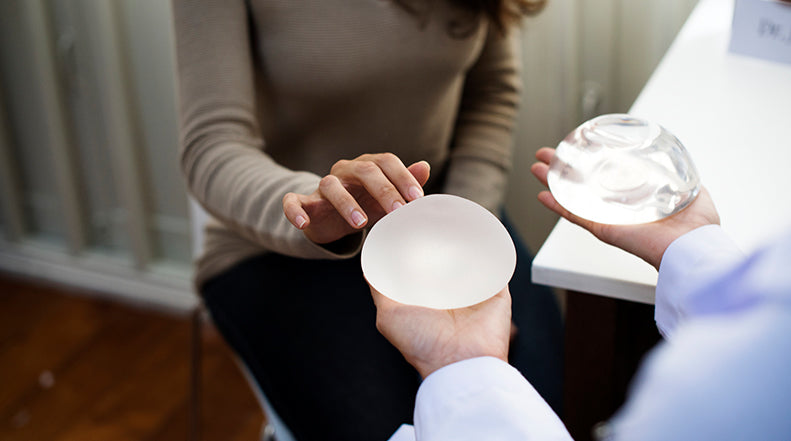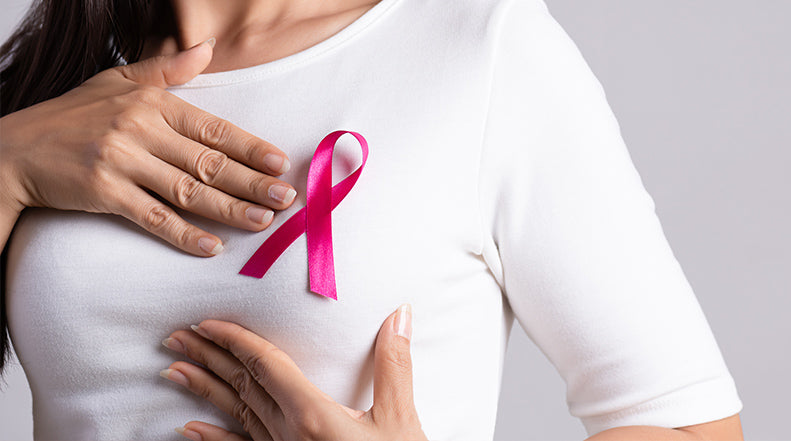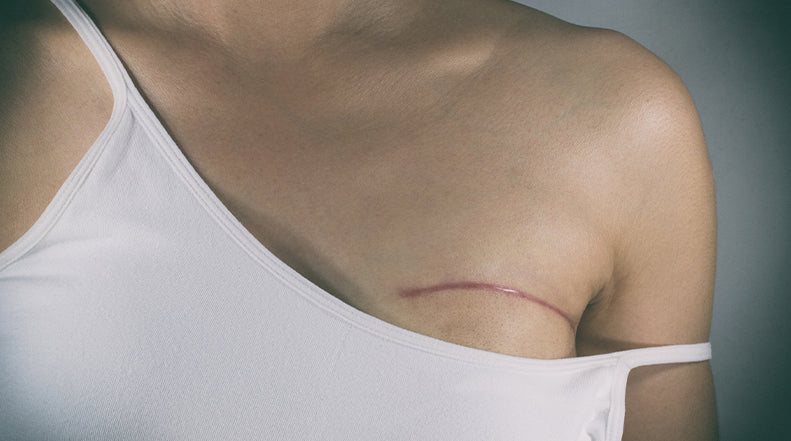Breast Reconstruction Options

Breast reconstruction is a surgical procedure that aims to restore one or both breasts to near normal shape, appearance, symmetry, and size following mastectomy, lumpectomy, or treatment of congenital deformities. Women often undergo reconstruction after treating breast cancer or also to prevent breast cancer if they are at a very high risk of developing it in the future. Below we are going over the different breast reconstruction options, what’s involved, as well as factors to consider when deciding which option is best for you.
IMPLANT-BASED RECONSTRUCTION VS. FLAP RECONSTRUCTION
There are several types of reconstructive surgery available, which sometimes involve more than one operation. Generally, breast reconstruction falls into two categories: implant-based reconstruction or flap reconstruction. Implant reconstruction uses silicone or saline breast inserts known as breast implants to help form a new breast mound. Flap (or autologous) reconstruction uses the patient's own tissue from another part of the body to form a new breast. Sometimes the implant and flap procedures are used in combination to reconstruct a breast.
In addition, nipple/areola tattooing and fat grafting can be done to help make the reconstructed breast look more like the original breast. The reconstructed nipple and areola do not have any sensation.
RECONSTRUCTION AFTER LUMPECTOMY OR PARTIAL MASTECTOMY
According to the American Cancer Society, most women who have breast conservation surgery (lumpectomy or partial mastectomy) do not need breast reconstruction. However, it’s possible for some women to have a breast deformity as a result of the surgery. An example of this would be if a woman has a large tumor removed from a small breast. These women may be candidates for different types of breast reconstruction (such as smaller implants or fat grafting) to reshape the breast. This type of surgery has outcomes similar to lumpectomy or partial mastectomy without reconstruction.
FACTORS TO CONSIDER
If you’ve decided that breast reconstruction is right for you, you and your doctors will discuss which type of surgery is best. Some of the factors to consider before choosing a breast reconstruction option include the following:
- Your overall health
- Your breast size
- The size and location of your breast cancer
- The extent of your breast cancer surgery
- Whether you will need treatments other than surgery for your cancer
- The amount of tissue available (for example, very thin women may not have enough extra tummy tissue to donate for flap reconstruction)
- Whether you want reconstructive surgery on one or both breasts
- Your desire to match the look of the other breast
- Your insurance coverage and related costs for the unaffected breast
- How quickly you want to be able to recover from surgery
- Your willingness to have potentially more than one surgery as part of the reconstruction
- How different types of reconstructive surgery might affect other parts of your body
After reviewing your medical history and overall health, your surgeon will explain which reconstructive options might be best for you based on these factors. Be sure to talk with your surgeon openly about your preferences and to voice any concerns and priorities you have for the reconstruction. Your surgeon should explain the limits, risks, and benefits of each option.
No matter your situation, you can’t predict how you will react to losing a breast. It’s perfectly normal to feel anxious, sad, and uncertain about how you will feel about your physical appearance without them. Breasts represent a significant part of womanhood, and many women do not feel comfortable without them. Fortunately, the several different breast reconstruction options outlined above can help to restore your confidence and return a feeling of normalcy. Of course it’s important to do some careful thinking in order to figure out what is best for you.




Comments